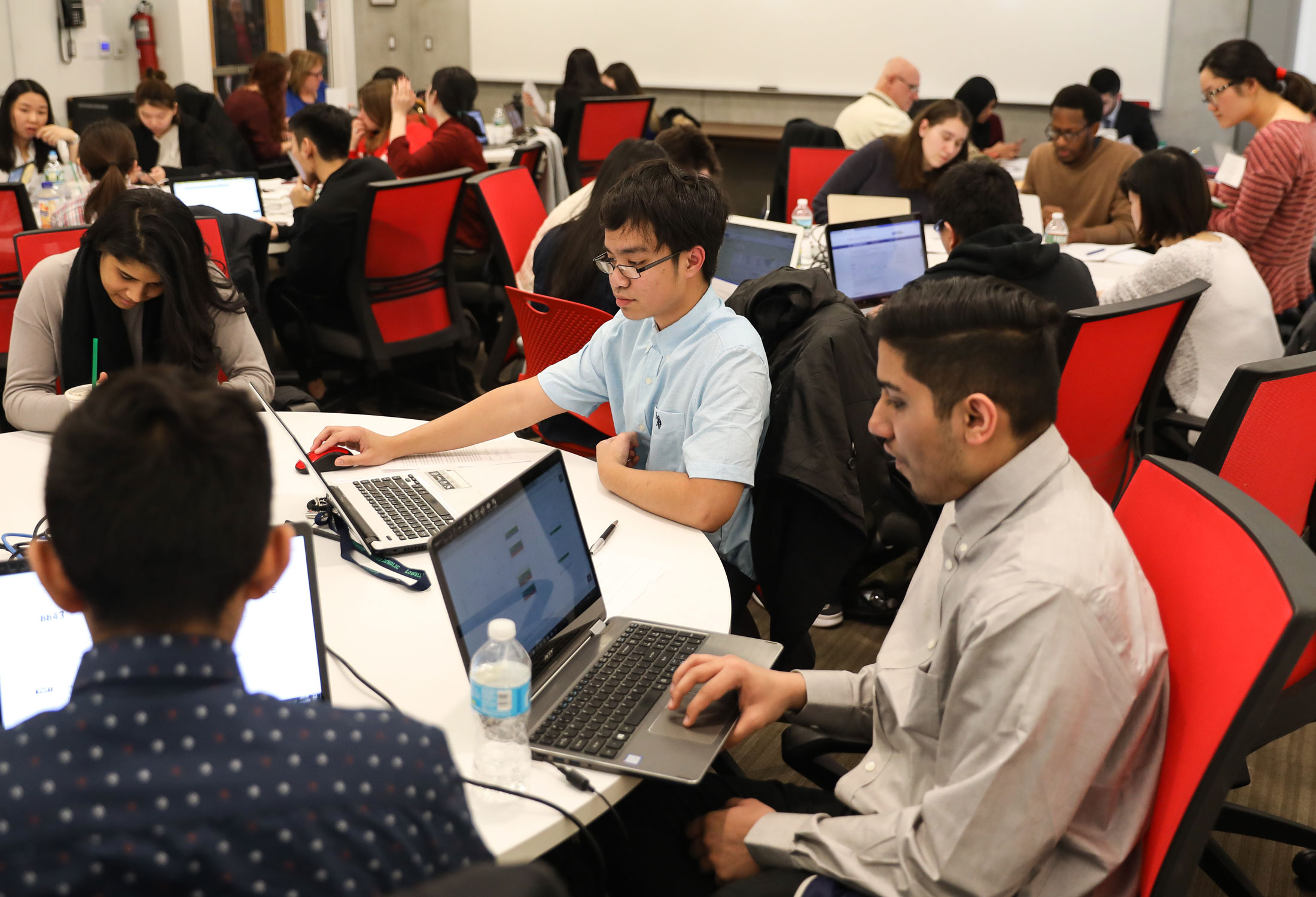Two of the most discussed issues of the last 13 months—taxes and immigration—showed up together in the same room at Suffolk this winter. Again and again.
Starting in January 2018, 35 graduate and undergraduate student volunteers from the Sawyer Business School worked every Wednesday and most Saturdays to help more than 400 people file around 1,000 tax returns at the Suffolk Free Tax Prep Clinic. Now in its fourth year, the clinic serves current and recent Suffolk students, lower income neighbors of the University, and, more significantly this year, international students, teachers, and research fellows.
“Whether or not they earn income, people holding an F, J, M, or Q visa need to file tax forms every year,” said Professor of Taxation Michaele Morrow, site coordinator for the center. “A lot of people don’t know that, which isn’t totally surprising. If you think about coming over here from another country, maybe learning another language, getting used to living in a new city, the last thing on your mind is anything related to the US tax system, which can be pretty irksome.”
F, J, Q, or M:
What’s your visa?
The US Government’s list of non-immigrant visas is an alphabet soup of international bureaucracy. Here are some that the Tax Prep Clinic sees most often:
- F: All international students attending colleges, high school, seminaries, conservatories, and other institutions
- J: Professors, research scholars, au pairs, camp counselors, and teachers
- Q: Participants in international cultural exchange programs
- M: Participants in a vocational or other recognized nonacademic institution other than a language training program




